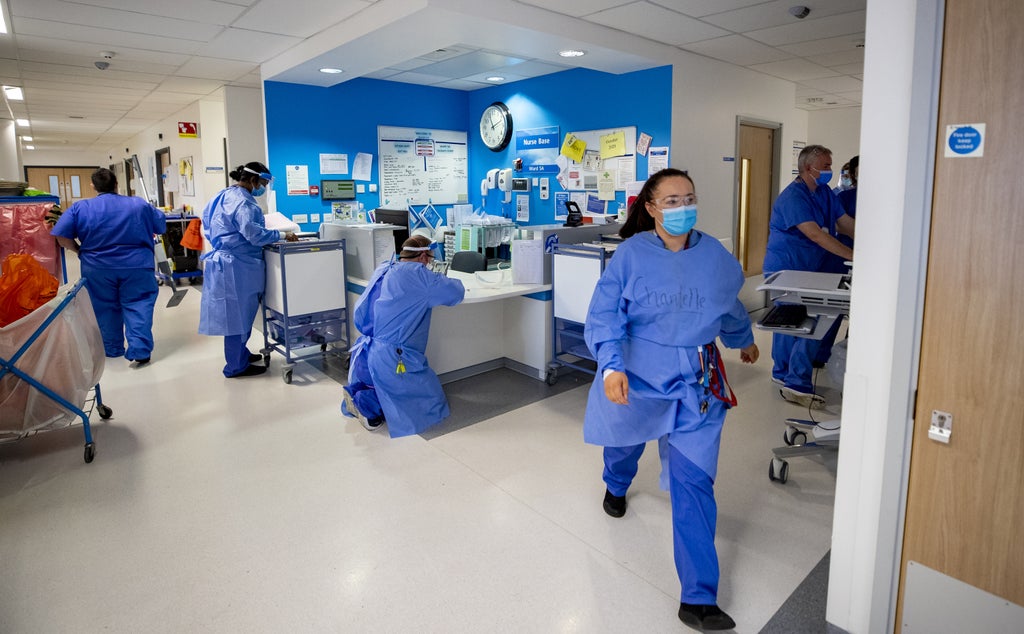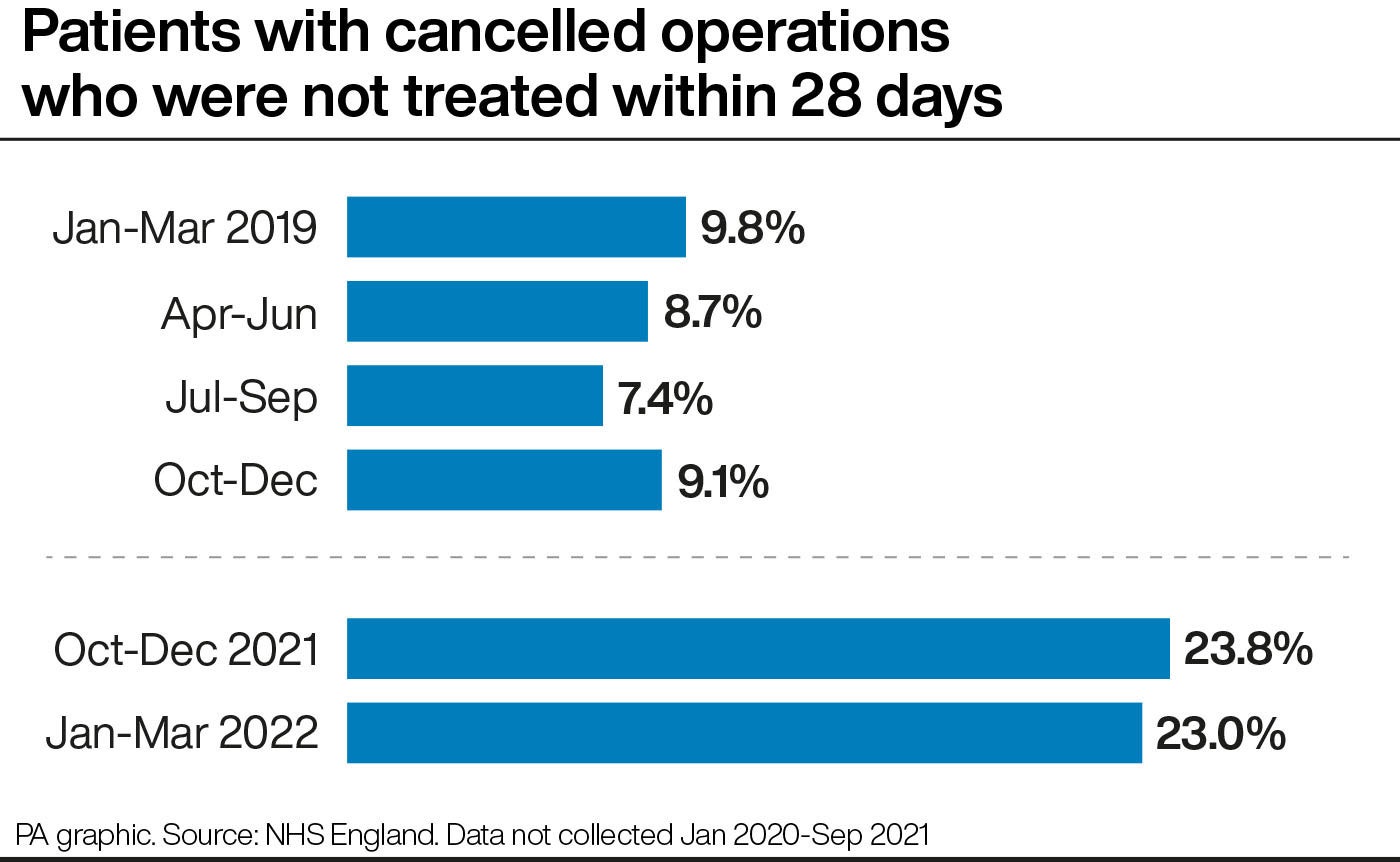
Nearly a quarter of patients in England who had hospital operations cancelled in the first part of this year had still not been treated 28 days later, new figures show.
The NHS aims to offer all people who have routine surgery cancelled at the last minute for non-clinical reasons “another binding date within 28 days”.
But of the 17,477 patients who had their operations cancelled in the three months from January to March, 4,015 (23.0%) had not been seen at least four weeks later, according to NHS England.
The proportion is broadly unchanged from the last quarter of 2021, when it stood at 23.8%.
Both figures are up sharply from before the Covid-19 pandemic.
Just 9.1% of patients who had operations cancelled in October to December 2019 were still waiting for treatment 28 days later.
The percentage of people not seen within four weeks of a cancellation is at its highest level for 20 years, according to PA news agency analysis.
The last time the figure topped 20% was in the first three months of 2002.

Data on cancellations was not collected between January 2020 and September 2021 “due to Covid-19 and the need to release capacity across the NHS”, according to NHS England.
Fiona Myint, vice-president of the Royal College of Surgeons of England, said the figures show the impact of the Omicron variant of Covid-19, which “wreaked havoc” on planned operations during the winter thanks to a combination of patients testing positive and staff off sick with the virus.
“Hospitals also had to wrestle with the long-running issue of staff vacancies, and struggled to discharge patients who were ready to leave, into social care,” she added.
“Winter is traditionally a difficult time for the NHS, when surgical beds are needed for seasonal viruses and emergencies. That’s why we have been calling for the creation of surgical hubs in every region, and a commitment to increase both the number of hospital beds and staff.”
The Midlands saw the highest proportion of cancellations in January to March this year which were not treated within 28 days, at 33%, according to the PA analysis.
North-east England and Yorkshire saw the lowest, at 16%.
The level varies considerably within regions, however.
While the Shrewsbury & Telford Hospital Trust reported a rate of 77%, Sandwell & West Birmingham Hospitals Trust – also in the Midlands – had a rate of 13%.
In London, none of the 208 patients who had operations cancelled at Barts Health Trust were treated within 28 days – but all of the 215 cancellations at the North West University Healthcare Trust, based in the north-west of the capital, were seen within the period.
Some of the most common non-clinical reasons for cancellations by a hospital included beds or staff being unavailable, emergency cases needing an operating theatre, and equipment failure.







